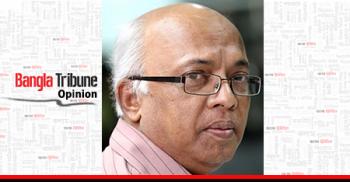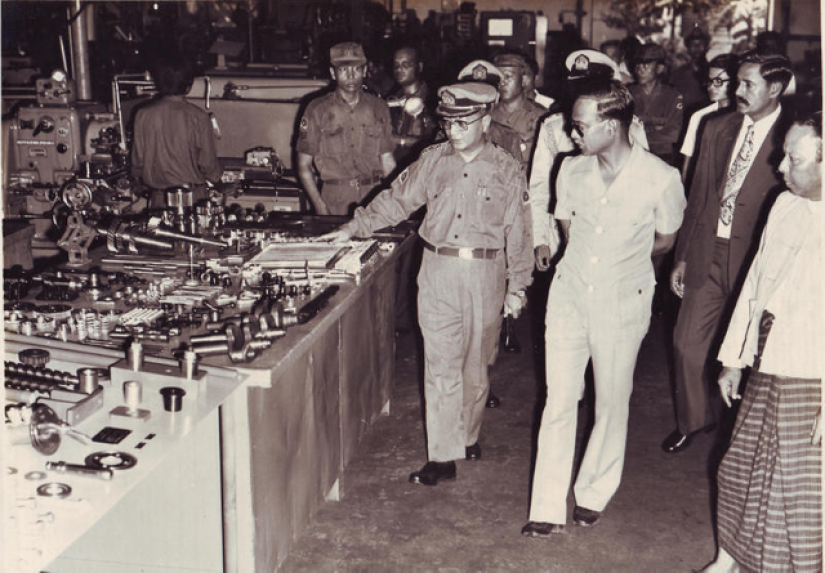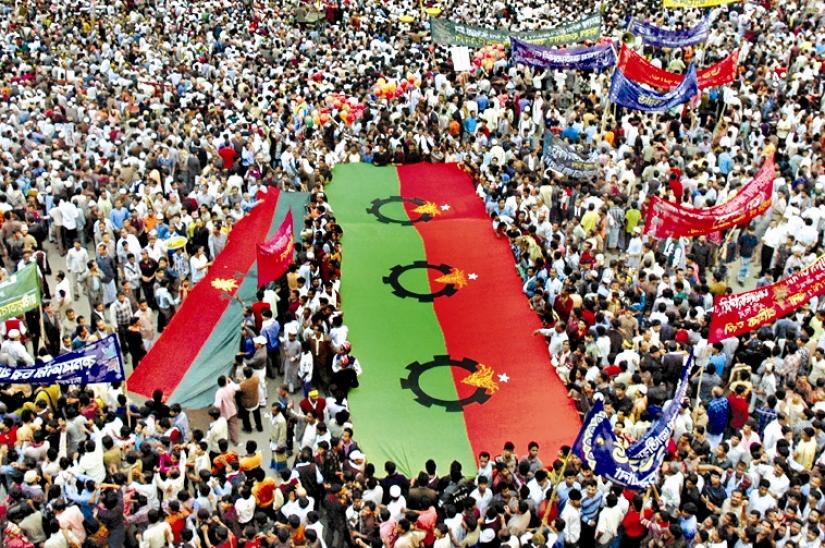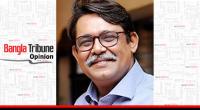 Forty-one years ago, on 1 September 1978, the Bangladesh Nationalist Party was floated in politics by the country’s first military ruler Ziaur Rahman. For the past forty-one years, the party has been a pivotal part of Bangladesh’s politics despite the circumstances in which it was conceived and the manner in which it was born.
Forty-one years ago, on 1 September 1978, the Bangladesh Nationalist Party was floated in politics by the country’s first military ruler Ziaur Rahman. For the past forty-one years, the party has been a pivotal part of Bangladesh’s politics despite the circumstances in which it was conceived and the manner in which it was born.
For those among us who tend not to remember, or who genuinely forget, let it be noted that the party was foisted on the nation by the country’s first military ruler, the overall objective being the creation of a platform for General Ziaur Rahman to present himself as a political figure before the country.
In quite a few ways, the move was reminiscent of Field Marshal Mohammad Ayub Khan’s in the early 1960s, when Pakistan’s first military ruler decided in the infinity of his wisdom that he was his country’s destiny. And that destiny could be arrived at through an instrument of a political party, in this case, the Convention Muslim League.
There is then, when you consider history, little difference between Zia and Ayub. Both men looked upon politicians with disdain and yet both needed to clothe themselves as politicians. Where the two dictators differed is in the way they gave shape to their political organizations. Ayub Khan simply commandeered half of the Pakistan Muslim League and claimed it for his own; Ziaur Rahman cobbled his own party into shape and welcomed into its fold political figures who had once heartily sided with Pakistan in its programme of exterminating Bengalis, so-called pro-Chinese leftists who could not stomach the manner in which Bangladesh had waged and won its war of liberation, retired military and civil officers who felt uncomfortable with secular politics and a sprinkling of pro-liberation politicians who thought the BNP would give them the space they quite did not have earlier. Fundamental to the birth of the BNP was a need on Zia’s part to counter the politics of the Awami League. And that came through the adoption of a policy he and his acolytes called Bangladeshi nationalism. To Zia’s detractors, and not without reason, ‘Bangladeshi nationalism’ has been a subtle mode of return to the old, discredited two-nation theory which rent India asunder in the 1940s on the premise of communal politics.
 In the years since 1978, the BNP has not deviated from its founding principles. It has been in power quite a few times and has obviously enjoyed being the custodian of the state. And yet in all its stints in office, it has hardly demonstrated an ability to govern. Its leading figures, drawn by and large from the elite class, one clearly urban-based and therefore lacking the identification with the masses that Bengali nationalist leaders propounded so well in the 1960s, have proved consistently unable to provide the country with a sense of vision. The party has enjoyed being in the office with Begum Khaleda Zia at its head. It has, on the other hand, remained hamstrung by prejudices it has never been able to shake off. Just how prevalent those prejudices come through the late Khondokar Delwar’s insinuation about the Awami League being in a state of glee where its relations with ‘a particular state’ are concerned. That particular state is, of course, India. And, to be sure, the attitude is reflective of the BNP’s belief that Bangladesh is a Muslim, rather than a secular, state. That as well as the party’s obsession with a redrawing of history, to the detriment of the truths established in 1971, has quite prevented it from offering Bangladesh’s people a credible alternative in politics.
In the years since 1978, the BNP has not deviated from its founding principles. It has been in power quite a few times and has obviously enjoyed being the custodian of the state. And yet in all its stints in office, it has hardly demonstrated an ability to govern. Its leading figures, drawn by and large from the elite class, one clearly urban-based and therefore lacking the identification with the masses that Bengali nationalist leaders propounded so well in the 1960s, have proved consistently unable to provide the country with a sense of vision. The party has enjoyed being in the office with Begum Khaleda Zia at its head. It has, on the other hand, remained hamstrung by prejudices it has never been able to shake off. Just how prevalent those prejudices come through the late Khondokar Delwar’s insinuation about the Awami League being in a state of glee where its relations with ‘a particular state’ are concerned. That particular state is, of course, India. And, to be sure, the attitude is reflective of the BNP’s belief that Bangladesh is a Muslim, rather than a secular, state. That as well as the party’s obsession with a redrawing of history, to the detriment of the truths established in 1971, has quite prevented it from offering Bangladesh’s people a credible alternative in politics.
 More than four decades into its birth, and quite stymied by conditions in the last few years with its chairperson in legal difficulties, the Bangladesh Nationalist Party needs to go into introspection about its future. That will depend on how it comes to terms with its present or with those moments when it has found itself out of power. The party has in the years since the restoration of parliamentary democracy in 1991 demonstrated a puzzling degree of indifference to politics every time it has lost an election and gone into opposition.
More than four decades into its birth, and quite stymied by conditions in the last few years with its chairperson in legal difficulties, the Bangladesh Nationalist Party needs to go into introspection about its future. That will depend on how it comes to terms with its present or with those moments when it has found itself out of power. The party has in the years since the restoration of parliamentary democracy in 1991 demonstrated a puzzling degree of indifference to politics every time it has lost an election and gone into opposition.
The Bangladesh Nationalist Party needs to turn around and go for a philosophical transformation of its ideals if it means to be a modernizing force geared to addressing the future. It ought to acknowledge the mistakes it has made in the exercise of state power and rethink its position on the interpretation of national history. Most important, its focus should be on reinventing itself, as a party of the masses. To do that, though, it must be ready to step back from all those thoughts which have since September 1978 placed it on a confrontational path with the founding principles of the state of Bangladesh. That includes taking a transparent, unambiguous position on issues as critical as the recent trials of war criminals and its ties with individuals and organizations notorious for their collaboration with the Pakistan military junta in 1971.
Informed, active and enlightened politics is what the BNP should be ready to offer in these changed times. If it does not, the loss will be it's own.
Syed Badrul Ahsan is a political commentator and biographer of Bangabandhu Sheikh Mujibur Rahman and Tajuddin Ahmad.


